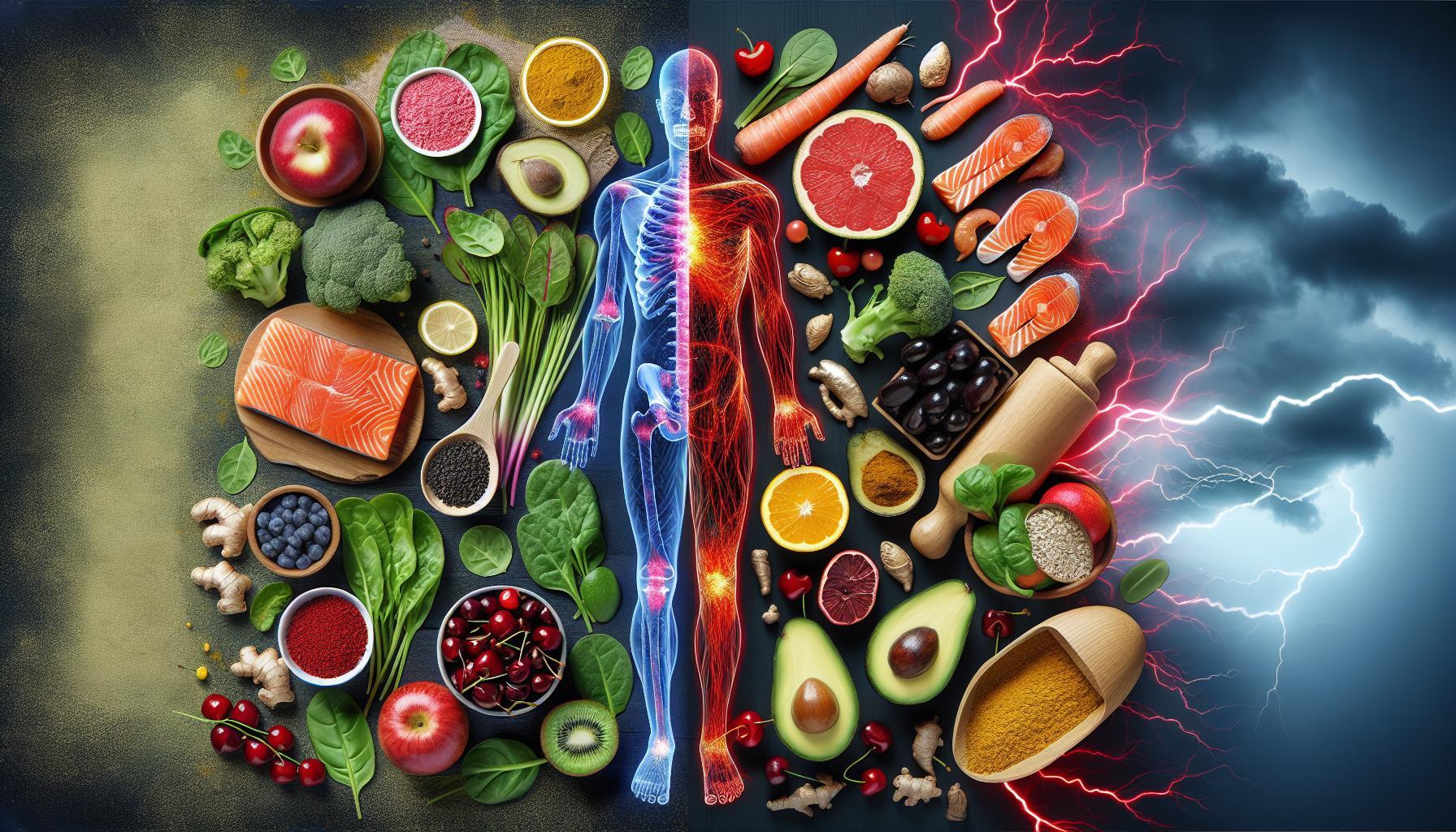Quick energy boosters such as Pre-Workout Meals or diet plans like the “Anti-Inflammatory Diet Guide” are popular among fitness enthusiasts. And when it comes to addressing chronic pains, considering the link between “Diet and Chronic Pain Management” holds great importance. Proper nutrition and the right “Nutritional Supplements for Pain Relief” can ease pain while aiding the body’s natural healing process. This blog post focuses on the importance of diet in managing chronic pain, with insights ranging from inflammation triggers to pain-relieving superfoods. Perfectly balanced for anyone seeking manageable and sustainable health solutions, this post promises to be an educational experience for all our readers.
The Link Between Diet and Chronic Pain Management
Chronic pain often results from conditions such as arthritis, fibromyalgia, migraine, and neuropathy. Research suggests that dietary habits can affect pain levels and responses since certain foods may trigger inflammation—a significant cause of chronic pain.
Understanding Inflammation and Pain
Inflammation is the body’s defensive measure against injuries or infections. However, persistent inflammation could lead to chronic pain. Certain foods are infamous for promoting inflammation, which can exacerbate pain levels.
Inflammation-Causing Foods to Avoid
Different kinds of food can worsen inflammation and thereby increase chronic pain. The most common are processed foods high in trans fats, sugars, and certain oils.
The Impact of Processed Foods
Processed foods often contain additives and preservatives that may increase inflammation in the body, leading to increased pain perception. Reducing these foods from your diet may significantly help in managing chronic pain.
Inflammation-Fighting Superfoods
On the other end of the spectrum, incorporating anti-inflammatory foods in the diet can be beneficial. Foods rich in Omega-3 fatty acids, antioxidants, and other specific nutrients can combat inflammation.
The Power of Omega-3s
Omega-3 fatty acids, found in foods like fish and flaxseeds, have potent anti-inflammatory effects that can help in easing chronic pain.
The Role of Hydration in Chronic Pain Management
Proper hydration plays a critical role in overall health. With respect to pain, dehydration can lead to painful conditions like headaches and muscle cramps.
The Wonders of Water
Water enable body cells to work efficiently and aids in flushing out toxins, thereby possibly reducing pain.
Special Diets in Chronic Pain Management
Some special diets showing promise in managing chronic pain include Mediterranean, Anti-Inflammatory, and Plant-Based diets.
Miracles of the Mediterranean Diet
The Mediterranean diet, filled with fruits, vegetables, lean proteins, and healthy fats, can potentially decrease inflammation, therefore easing chronic pain.
Importance of Professional Guidance
While adjusting dietary habits can benefit chronic pain management, it’s important to consult a professional. A registered dietitian or a healthcare provider can provide personalized advice.
Tailored Nutrition Advice
A healthcare provider can guide you in developing a diet plan that meets your nutritional needs, lifestyle preferences, and pain management goals.
Conclusion
Living with chronic pain can be challenging. However, incorporating changes in diet can help to manage chronic pain. From understanding the link between “Diet and Chronic Pain Management” to recognizing the power of superfoods, proper hydration, and special diets, making informed choices can support your journey towards improved health. Remember, a tailored approach guided by a healthcare professional can best cater to your unique situation.
Frequently Asked Questions – FAQs
Can diet really help to manage chronic pain?
Yes, certain diets can help to reduce inflammation in the body which often contributes to chronic pain.
What foods are best for chronic pain?
Foods rich in omega-3 fatty acids, antioxidants, and anti-inflammatory properties like fish, flaxseeds, berries, cherries, and spinach can help.
Are there any particular diets for chronic pain management?
Diets like the Mediterranean, Anti-Inflammatory, and Plant-based diets can help in chronic pain management.
How does hydration affect chronic pain?
Dehydration can exacerbate pain conditions like headaches and muscle cramps. Hence, proper hydration is important.
Should I consult a dietitian for chronic pain management?
Yes, consulting a professional allows for a diet plan that best suits your individual needs, preferences, and pain management goals.










